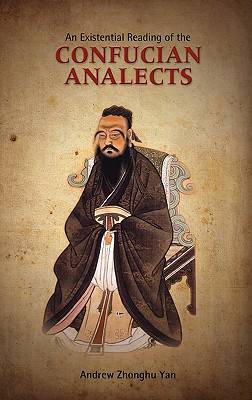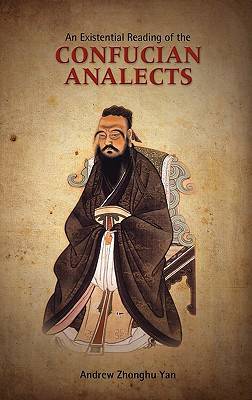
Bedankt voor het vertrouwen het afgelopen jaar! Om jou te bedanken bieden we GRATIS verzending (in België) aan op alles gedurende de hele maand januari.
- Afhalen na 1 uur in een winkel met voorraad
- In januari gratis thuislevering in België
- Ruim aanbod met 7 miljoen producten
Bedankt voor het vertrouwen het afgelopen jaar! Om jou te bedanken bieden we GRATIS verzending (in België) aan op alles gedurende de hele maand januari.
- Afhalen na 1 uur in een winkel met voorraad
- In januari gratis thuislevering in België
- Ruim aanbod met 7 miljoen producten
Zoeken
Omschrijving
The single most influential work in Chinese history is Lunyu, the Confucian Analects. Its influence on the Chinese people is comparable to that of the bible on the Western world. It is neither a tract of prosaic moralism contained in the fortune cookies in Chinese restaurants nor a manual of political administration that prescribes do's and don't's for new initiates. A book claiming a readership of billions of people throughout the history in China and East Asia and now even in the Western world must be one that has struck a chord in the readers, one which appears to arise from the existential concerns that Confucius shared: How can one overcome the egoistic tendency that plagues life? How does one see the value of communal existence? What should be one's ultimate concern in life? These questions call for a line of inquiry on the Analects that is explicitly existential. An existential reading of the Analects differs from other lines of inquiry in that it not only attempts to reveal how the text spoke to the original audience but also to us today. It is not only a pure academic exercise that appeals to the scholarly minded but also an engagement with all who feel poignantly about existential predicaments. In this existential reading of the Analects, the author takes Paul Tillich as an omnipresent dialogical partner because his existential theology was at one time very influential in the West and currently very popular in Chinese academia. His analysis of ontological structure of man can be applied to the Analects. This conceptual analysis reveals that that this foundational text has three organically connected levels of thought, proceeding from personal cultivation through the mediation of the community to the metaphysical level of Ultimate Reality. Few scholarly attempts like this one have been made to reveal systematically the interconnectedness of these three levels of thought and to the prominence to their theological underpinnings. This existential reading of the Analects carries with it a theological implication. If one follows the traditional division of a systematic theology, one will find that the Analects has anthropological, ethical, and theological dimensions, which correspond to the three levels of thoughts mentioned. If one understands soteriology more broadly, one will find the Analects also has a soteriological dimension. The Analects points to the goal of complete harmony in which a harmony within oneself, with the society and cosmos are ensured. If one is to construct a theology of the Analects, the existential reading enables the drawing of certain contrasts with Paul Tillich's existential theology. The Confucian idea of straying from the Way differs from the symbol of fall. The Confucian reality of social entanglement differs from the reality of estrangement. The Confucian paradoxical nature of Heaven differs from trinitarian construction of God. The most important contribution of this study is that it reveals the religious or theological dimension of the Confucian Analects. This is an important book for those engaged in the study of the Confucian Analects, including those in Chinese studies as well as comparative theology and religion.
Specificaties
Betrokkenen
- Auteur(s):
- Uitgeverij:
Inhoud
- Aantal bladzijden:
- 214
- Taal:
- Engels
- Reeks:
Eigenschappen
- Productcode (EAN):
- 9781604977530
- Verschijningsdatum:
- 18/06/2011
- Uitvoering:
- Hardcover
- Formaat:
- Genaaid
- Afmetingen:
- 152 mm x 229 mm
- Gewicht:
- 485 g

Alleen bij Standaard Boekhandel
+ 284 punten op je klantenkaart van Standaard Boekhandel
Beoordelingen
We publiceren alleen reviews die voldoen aan de voorwaarden voor reviews. Bekijk onze voorwaarden voor reviews.









